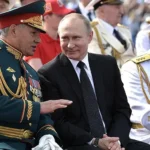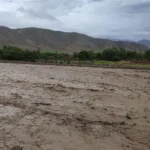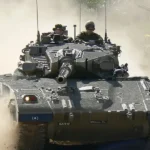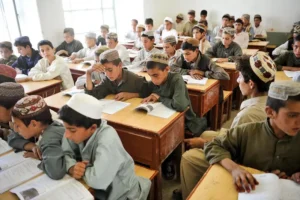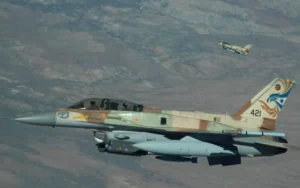Since 2020, the PLA has added over 400 combat aircraft and 20 major warships while doubling its ballistic and cruise missiles, according to the chief of the United States Indo-Pacific Command, Admiral John Aquilino.
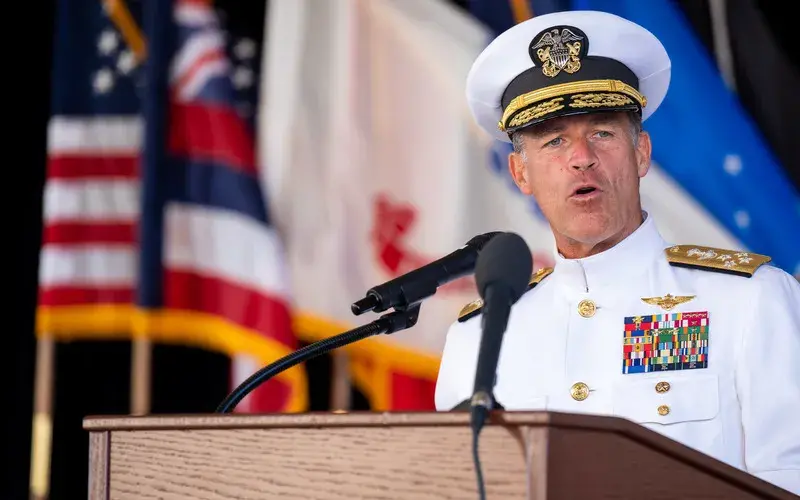
The chief of the United States Indo-Pacific Command, Admiral John Aquilino, said on Wednesday that he believes the Chinese military will be ready to invade Taiwan by the year 2027, thus fulfilling an objective that U.S. military officials believe Chinese President Xi Jinping set to reunite Taiwan with mainland China.
Aquilino, who testified before the Republican-led House Armed Services Committee, said that “all indications point” to the People’s Liberation Army (PLA) achieving Xi’s purported objective of potentially invading Taiwan by 2027.
Since 2020, the PLA has added over 400 combat aircraft and 20 major warships while doubling its ballistic and cruise missiles, according to Aquilino, who said that China has increased its spending by 16% to over $223 billion.
Aquilino asserted that the Chinese military has been simulating operations it would conduct against Taiwan in recent years, including maritime and aerial blockades.
However, Avril Haines, the Director of National Intelligence, told the bipartisan House Intelligence Committee last year that “it is not our assessment that China wants to go to war.” Yun Sun, Director of the Stimson Center, a U.S.-based think tank, told The Guardian that she did not believe “military preparedness” would lead China to attack.
Xi reportedly told Joe Biden last year that he had not set a timetable for reunifying Taiwan with China, according to NBC News, citing anonymous sources with knowledge of the discussions.
Taiwan’s Foreign Minister, Joseph Wu, said last year that Taiwan was “taking the Chinese military threat very seriously,” adding that he believed “2027 is the year we must take seriously.”
The situation surrounding Taiwan escalated last year following a visit by former U.S. House Speaker Nancy Pelosi, followed by a visit to Washington by a Taiwanese delegation.
Relations between China and the island of Taiwan, which it considers a province under its sovereignty, broke down in 1949 after the Kuomintang Nationalist Party forces were defeated in the civil war against the Communist Party and relocated to the archipelago. Relations were only reestablished at a business and informal level in the late 1980s.
Wu warned on Wednesday about the presence of “huge” Chinese regime military bases near Taiping, the largest island in the Spratly archipelago in the South China Sea.
“China has established large military bases on the reefs surrounding Taiping Island, such as Mischief, Subi, and Fiery Cross reefs. These situations must be taken into account,” the Taiwanese foreign minister emphasized in remarks to the media.
Since 1946, Taiwan has exercised control over Taiping, also known as Itu Aba, and has established a Coast Guard garrison, a port, a runway, and other civilian infrastructure there.
The largest of the Spratly Islands made headlines again this week after the Foreign Affairs and Defense Committee of the Taiwanese Parliament, coordinated by legislator Ma Wen-chun of the opposition Kuomintang (KMT) party, announced a visit to Taiping scheduled for next May.
Opposition lawmakers have urged President Tsai Ing-wen to visit Taiping before her term ends on May 20, following the precedent set by former leaders such as Chen Shui-bian and Ma Ying-jeou.
The Democratic Progressive Party (DPP) reaffirmed its commitment to Taiping’s sovereignty through a Facebook statement, although it noted that it is not the right time for Tsai’s trip due to current geopolitical tensions.
When asked about this issue, the Taiwanese foreign minister reiterated on Wednesday that Taiping is under Taiwan’s sovereignty, and there is no doubt about it, while acknowledging his “doubts” about the lawmakers’ trip.
“As disputes continue to escalate, Taiwan must consider peaceful solutions to the problems in the South China Sea, rather than allowing others to think it is creating difficulties,” Wu concluded.

